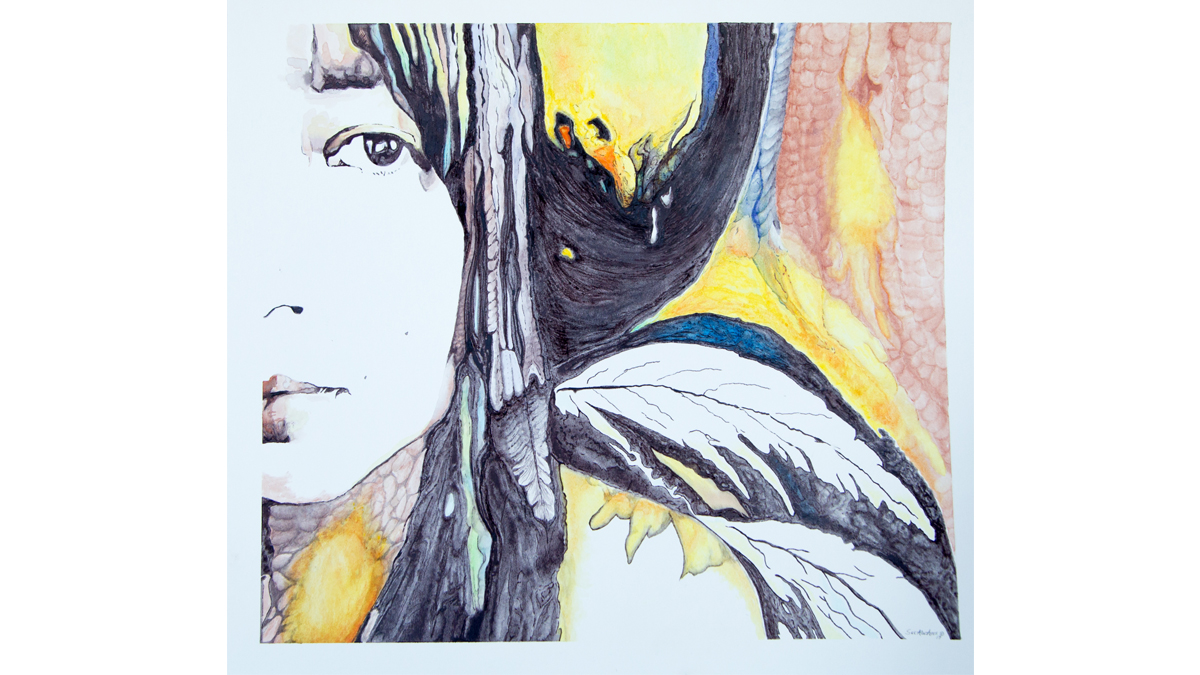 Brenda Morency
Brenda MorencyTracy Bear says that erotica isn’t just about sexuality, it’s about being in the moment. She calls it the “sweet spot.”
“The anti-erotic would be on the train missing a sunset because you’re texting,” she says. “I find technology often pretty anti-erotic and isolating.”
And she wants her students to live in the erotic as well. An assistant professor in the Faculty of Native Studies, Bear created a course in indigenous erotica in 2014 — currently named NS 280 (Selected Topics in Native Studies), it covers indigenous views of sexuality and gender prior to colonists’ arrival in Canada.
“Sexuality was much more fluid, there was much more freedom for men and women and everyone in-between to express themselves,” Bear says. “It wasn’t steeped in shame and sin.”
In precolonial Canada, indigenous people lived in close quarters, and sex was a normal part of life, Bear explains. The artists and writers studied in the class are trying to reclaim that openness.
“We look at these artists that are coming out of this smog of sin and shame around sexuality, which was largely due to residential schools and the church’s influence,” she says. “These artists are pushing back at that and re-imagining what our sexuality and gender as indigenous people should be.”
Bear started the indigenous erotica course because she wanted to find joy and celebration in indigenous sexuality after working in the realm of missing and murdered indigenous women.
“It wears on you, the violence and death,” she says. “The sorrow is a heavy weight to bear but it’s important work.”
The class doesn’t follow the traditional syllabus of a university course with a paper, midterm, and final formula. A third of students’ grades come from visually artistic journals that are referred to as “VAJ.”
“At the beginning, students have a lot of hangups about saying ‘VAJ,’” Bear says. “It must take maybe three weeks for them to really get into it, and they get quite cheeky after that.”
Students synthesize words, images, and objects in their journals to respond to class readings and discussions. One journal assignment, for example, asks students to depict their sexual education experience. Bear says the “incredibly poor” sexual education system in school still surprises her.
Indigenous bodies have been policed and disrespected for a very long time, which is why Bear says she is an advocate for their reinvention, as well as a researcher of the erotic and its potential for decolonization.
“Indigenous erotica is a fantastic medium in order to reclaim our bodies and define for ourselves what our bodies can be,” she says. “It’s a really powerful message and I think that’s why the indigenous erotica course is so popular.”




